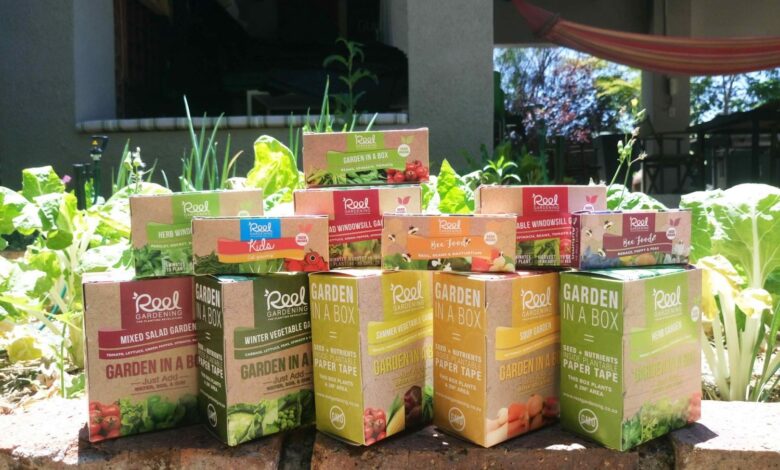How SA StartUp Reel Gardening Seeks To Solve The Current Food Crisis

How SA StartUp Reel Gardening Seeks To Solve The Current Food Crisis. Reel Gardening is a patented biodegradable seed tape which anchors seed and nutrients at the correct depth and distance apart. To plant, place the paper vertically in the soil with the coloured portion visible above the soil. The plants emerge correctly spaced, differentiated from weeds and the paper eventually decomposes to produce compost in the soil. Reel Gardening hosts a variety of benefits making it more successful than traditional seed.
Claire Reid Invented the product in 2002, patented the technology and then founded Reel Gardening as a social enterprise in 2010. The company consists of a small team of 7 people, based in Johannesburg South Africa and it has spent years developing both the product and its ability to create sustainable impact to food security in Africa. The company has won numerous local and international awards such as the Stockholm Junior Water Prize and the 2017 Agriprenure of the year and has been featured in multiple publications such as Forbes Women Africa.
All of the company’s products are handmade with care and love in Johannesburg South Africa. Its manufacturing process is designed to create maximum employment of previously unemployed mothers. The company believes that for it to solve the current food crisis, people need to get back to basics and get hooked on growing food. Reel Gardening offers simple solutions to food gardening both for schools and for households.
The company believes that the way to sustainably tackle the current food crisis is to create systemic behaviour change and get kids to both understand and enjoy the simple pleasure that is growing one’s own food. The company achieves this through its Learn and Grow kit. Each kit creates an outdoor classroom and provides the teacher or parent with everything they need to utilise the garden as a teaching tool. Reel Gardening developed this kit over the past 2 years and has initially rolled them out to over 2500 schools across South Africa with great success.




